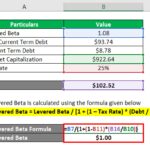Content

Traditional finance and strategy courses do not consider the role of taxes. Similarly, traditional tax courses often ignore the richness of the decision context in which tax factors operate. The ultimate goal is to provide a new approach to thinking about taxes that will be valuable even as laws and governments change.
What is introduction to finance and accounting?
This specialization provides an introduction to corporate finance and accounting, emphasizing their application to a wide variety of real-world situations spanning personal finance, corporate decision-making, financial intermediation, and how accounting standards and managerial incentives affect the financial reporting …
Because most business is a series of promises between parties, promises to pay and promises to deliver, cash does not always change hands at the moment the promise is made. For this reason, financial accounting is best done on an accrual basis as opposed to a cash basis. When that is done, there needs to be a way to track the movement of cash in and out of the business separate from accrued promises between parties, and this is done on the cash flow statement. Looked at this way, it is evident that you need the financial accounting of what happened yesterday to make good decisions for tomorrow.
The Core Differences Between Financial Accounting Vs. Managerial Accounting
Primary emphasis is on the application of purchase accounting for mergers and acquisitions, the equity method for investments, and preparing and interpreting consolidated financial statements. Other topics covered include translations and remeasurements for nondomestic investments, and earnings per share calculations for complex financial structures. Tax considerations and acquisition strategies are of only peripheral interest in this class, and students who are concerned primarily with those topics are advised to seek a different elective. Lenders and other similar financial institutions will almost always require financial statements as part of the business loan process. Lenders will need to see verifiable proof via financial accounting that a company is in good operational health prior to issue a loan .
- But the three basic financial statements are the right place to start.
- However, the only concern of financial accounting is profitability on the business.
- Further topics include life-cycle emissions and the social cost of carbon.
- Managerial accounting includes examining the use of accounting information for planning, control, and decision-making in today’s fast-changing business environment.
On the other side, financial accounting investigates what the company has already achieved. When someone reads a financial accounting report, he/ she https://quick-bookkeeping.net/purchase-order-number-vs-purchase-order-item/ discovers the reports of last year, last week, or last day. In any business firm, accounting management is an essential component for it every day.
Statement of Shareholders’ Equity
Assets, liabilities and equity accounts are reported on the balance sheet. The balance sheet utilizes financial accounting to report ownership of the company’s future economic benefits. Financial accounting reports on the profitability of a business, whereas managerial accounting reports on specifically what is causing problems and how to fix them.
What is financial & managerial accounting?
The difference between financial and managerial accounting is that financial accounting is the collection of accounting data to create financial statements, while managerial accounting is the internal processing used to account for business transactions.
Sometimes the bank may want to know how you did, but generally, if the owner-operator prepares a narrative of their business activity, it’s generally for themselves. Some have tried to form boards, but there’s an artificial nature to a board that has no ownership and no real skin in the game. Peer roundtables, consultants and coaches are generally the audience for small business owners looking for someone to tell their narrative to. We will explore this question of small-business boards in another paper in this series.
Accessibility
Cost accounting is rooted in using operational information in specific ways to glean information. For example, cost accounting may track the variable costs, fixed costs, and overhead costs along a manufacturing process. Then, using this information, a company may decide whether to convert to a lower quality, less expensive type of raw materials. While companies rely on financial accounting for preparing financial statements, companies rely on cost accounting to internally analyze operations and generate internal-only reports. Managerial accounting on the other hand, is done to provide information to managers within the organization.
- You may also need to monitor bank statements, investments, and more, requiring similar steps to preparing financial statements for a business.
- But if you want more advanced features & functionalities to operate your business process then you can do that do at its very competitive yet affordable pricing plan.
- The records created by the financial accounting process are needed for regulatory and investment purposes, while the managerial accounting systems are in place for planning, controlling, decision making and strategizing.
- The key difference between financial accounting and managerial accounting lies in the intended users of information for each.
Essentially, it is the precise and accurate recording of the economic transactions of a company. Though there are different types of accounting and they have multiple purposes but its core characteristics are the same. But for the last few years, the comparison between Financial Accounting Vs Managerial Accounting has always been a topic of discussion in the business industry. This intensive one-semester course focuses on how to extract and interpret information in financial statements. The course adopts a user perspective of accounting by illustrating several specific accounting issues in a decision context. Financial accounting requires that records be kept with considerable precision, which is needed to prove that the financial statements are correct.
This kind of nonfinancial information comes from the managerial accounting function. Contact our Milwaukee bookkeeping firmfor more information about financial and managerial accounting. If running a business is both an art and a science, managerial accounting is where the science comes in. Just as the architect works from measurements and drawings, so the business owner works from numbers and data.

The report is broken into sections that summarize the operating, financing, and investing sources and uses. Financial accounting guidance dictates when transactions are to be recorded, though there is often little to no flexibility in the amount of cash to be reported per transaction. For U.S. public companies, businesses are required to perform financial accounting in accordance with Introduction To Financial And Managerial Accounting generally accepted accounting principles . As stated above, these statements can be given to external users such as partners, stockholders, lenders, or consultants like us, and that’s why people talk about financial accounting being for those outside the business. However, in privately held companies, the most important audience for these documents should be the owner-operator.
Products
There is a creative side to the sciences, but they all start with hard data. A company may set a goal to gain customers because they can customize a good/service to best meet the customer’s needs. A company may gain customers by providing products and services faster and cheaper than the competition. A company may set a goal to gain customers based on their ability to provide a higher quality product than the competition. Human Resource Managers are tasked with making sure a company has enough trained staff to make all of the product or provide all of the services offered. Knowing how many people they need and creating a plan to implement the hiring and training of these people is crucial to excellent product or service delivery.

Managerial accounting provides financial information to internal users such as owners and managers so that they can make better strategic decisions. Now in its eight edition, Introduction to Accounting enables students to understand both the nature and functions of business and the mechanics of the bookkeeping process. Three organizing themes, ”the accounting information system, business processes, and the balanced scorecard,” help students learn why and how activities are planned and evaluated by different stakeholders.
Grand Valley State University
This chapter introduces the principles of managerial accounting and points out the differences between managerial accounting and financial accounting. Outside parties do not use managerial accounting; it is primarily used internally by management to make decisions that affect the organization’s efficiency. Financial accounting is based on historical data and managerial accounting is based on planning ahead, but both are necessary for a company to be successful. The records created by the financial accounting process are needed for regulatory and investment purposes, while the managerial accounting systems are in place for planning, controlling, decision making and strategizing.
- Financial accounting and managerial accounting are quite different.
- A statement of cash flow is used by managed to better understand how cash is being spent and received.
- Financial accounting must comply with various accounting standards, whereas managerial accounting does not have to comply with any standards when information is compiled for internal consumption.
- Financial accounting focuses on recording transactions as they occur.
This is because your personal finances often involve the preparation of financial statements to show income and expenses, and tracking your net worth. You may also need to monitor bank statements, investments, and more, requiring similar steps to preparing financial statements for a business. To pursue a career in business leadership, it is recommended to take managerial accounting after financial accounting. Financial accountants have a solid knowledge base and skill set in accounting with a good understanding of debit, credit, and financial reporting, which is helpful when preparing managerial financial reports. On the other hand, you will get highly regulated reports in financial accounting.